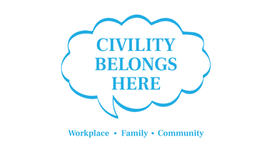- Sep 8, 2017
- 3 min read

At the end of Michael Jordan’s championship career with the Chicago Bulls, Nike created a 30-second commercial called “Failure”…and it had nothing to do with shoes.
It began by showing Jordan exiting his car under the United Center and entering an empty arena. During his walk to the locker room he said, “I’ve missed more than 9,000 shots in my career. I’ve lost almost 300 games. 26 times I’ve been trusted to take the game-winning shot and missed. I’ve failed over and over and over again in my life. And that is why I succeed.”
How do you feel about failure? If you were asked to narrate a commercial about the times in your life where you failed to achieve your goals, what would you say? Or would you prefer to keep your setbacks a secret?
Unfortunately, most leaders and parents fail when it comes to talking about failure. Too often we remain silent about the times we fell short of success. As a result, we unconsciously teach our co-workers and children three very damaging lessons:
Failure is bad.
Looking good is more important than getting better.
If you don’t think you can win, don’t play the game.
I’m not saying we need to like losing. Failure isn’t fun. Losing also intensifies our negative self-talk. Soon after a loss, unhealthy thoughts show up that cast doubt on our ability to turn the agony of defeat into thrill of victory.
There is no denying defeats are painful no matter how positive we try to be. It’s also true that no meaningful success can be achieved without failure. If we’re always winning, we’re not challenging ourselves enough. We’re not growing. We’re not thriving. We’re not making the unique contribution to our work and families that only we can make.
Regardless of how or why we’ve failed in the past, our losses are responsible for our wins and, in many cases, they’ve made us stronger, more humble and better human beings.
If those you lead and love have not heard about the times you stumbled, fell and got back up again…tell them. If they’ve not heard about the doubts and fears you experienced when others told you your idea was not going to work but you found the faith to go forward anyway…tell them. If they’ve not heard about the times you almost quit but made the choice to keep going because a leader in your life provided the encouragement, challenge and support you needed to take one more step…tell them. Our co-workers and family members need to know about the wounds that come before the wins.
Take some time today to reflect on these 10 questions:
What are your greatest accomplishments to date?
What obstacles did you have to overcome to be successful?
What doubts and fears did you have?
What actions pushed you beyond your comfort zone?
Which of your habits and behaviors got in the way of your success?
Which of your habits and behaviors helped you reach your goals?
What personal and professional failures did you have along the way?
What did you learn from those failures?
Who and what inspired you to keep going when you felt like quitting?
How have your failures helped you become a better leader, parent or friend?
After you answer the questions, pick one person and tell them your failure stories next week. Your goal should not be to get someone you care about to just fail, but rather encourage them to fail fast and frequently. There is no success without action, so use your story to inspire them to do whatever they can to keep trying new things, learning from their mistakes and adjusting their plans. Even when they feel afraid and unprepared, you want them to keep taking positive action. Every small step they take will create a ripple of new experiences and opportunities. Remember, Thomas Edison failed 10,000 times before he invented the light bulb.
No one ever learned to ride a bike by reading a book, studying balance or because their parents applauded. We all learned to ride by riding before we were ready and failing over and over and over again. That is why we succeed.
Let’s Get Better. Together! Bill Durkin
































Comments